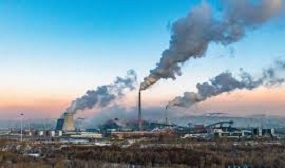On may 8 and 9, 2024 the United States hosted in Washington, D.C., a meeting of the U.S.-China Working Group on Enhancing Climate Action in the 2020s.
The meeting is co-led by Senior Advisor to the President for International Climate Policy John Podesta and PRC Special Envoy for Climate Change Liu Zhenmin and includes relevant officials from the two countries.
The in-depth discussions recalled the San Francisco summit between the two Presidents and focused on areas identified in the Sunnylands Statement, including energy transition, methane and other non-CO2 greenhouse gases, circular economy and resource efficiency, deforestation, and low-carbon and sustainable provinces/states and cities.
The discussions also involved cooperating on multilateral issues related to promoting a successful COP 29 in Baku, Azerbaijan. They exchanged experiences and challenges with respect to their respective climate policies and actions, with a view to responding meaningfully to the climate crisis and beyond.
Recalling the Paris Agreement’s temperature goal and reaffirming the importance of demonstrating their leadership, taking into account different national circumstances and pathways, the two sides welcomed the call in COP 28’s Global Stocktake decision for Parties to submit on time 2035 nationally determined contributions (“NDCs”) that are economy-wide, cover all greenhouse gases, and are 1.5C-aligned; they further expressed their intention to engage in related technical and policy exchange.
Recalling the U.S. intent to achieve 100 percent clean power by 2035, and the Chinese intent to phase down coal consumption during the 15th Five Year Plan and make best efforts to accelerate this work, including by accelerating renewables deployment, the two countries intend to intensify technical and policy exchanges on realizing their respective goals.
The two sides intend to host a second “Methane and Non-CO2 Greenhouse Gases Summit” at COP 29. The two sides committed to promote bilateral cooperation and conduct capacity building on deploying abatement technologies, as well as developing and/or improving respective MRV systems and standards aiming to achieve significant methane emissions control and reductions in the 2020s.
Both sides noted with interest the Methane Alert and Response System of the UNEP International Methane Emissions Observatory. They will also engage in technical cooperation and capacity-building for measurement and abatement solutions of other non-CO2 greenhouse gases, including industrial N2O as well as tropospheric ozone precursors.
Recognizing the importance of developing circular economy and resource efficiency in addressing the climate crisis, the two sides expect to conduct further technical exchanges on circular economy, including food loss and waste reduction, textiles, and recycling standards.
Both sides look forward to the U.S.-China High-Level Event on Subnational Climate Action, to be held May 29-30, in Berkeley, CA, according to the information obtained from the US State Department.

